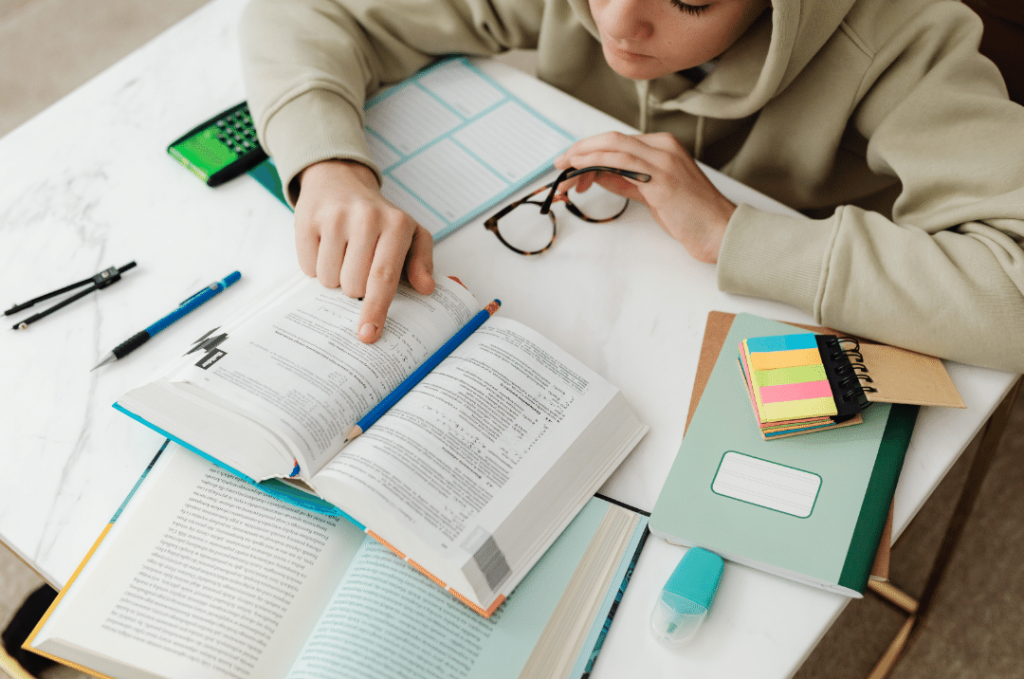Education & Career Trends: March 2, 2023
Curated by the Knowledge Team of ICS Career GPS

- Excerpts are taken from an article published on psychologytoday.com
You’re not alone if you become easily distracted or have trouble focusing on a task for long. The main reason why our concentration wavers is stress. In a recent survey conducted by the American Psychological Association, over two out of five respondents claimed that they were unable to function when under stressful situations or when feeling stressed.
Stress is broadly categorised into 2 types:
Eustress: The stress and worry that stems from positive situations, commonly seen under the lens of excitement. Some examples are going on a vacation, giving an exam, getting a promotion etc.
Distress: The stress stemming from negative or unpleasant situations. This includes the negative feelings experienced during loss or grief. For example, losing someone dear to you, accidents, loss of important possessions etc.
To an optimum level, stress acts as an important factor in helping to improve performance. This stress-performance graph goes up till it stabilises flat at our best performance zone. But when stress is increased beyond that, it becomes detrimental.
At this stage, stress plays a major role in impairing memory, concentration, and decision-making abilities.
During exams, feeling stressed is normal to a level where it acts as a driving force, motivating you to study and perform better. But if unchecked, this stress can also impair your concentration and memory.
Here are 5 simple ways to help you concentrate better:
1. Put your well-being and health first
- Put your well-being and health first. Your focus is best when you get enough sleep, eat well, stay hydrated, and maintain a healthy work-life balance.
- By taking brief breaks for the purpose of self-care throughout the day, you can maintain a stable level of and rejuvenate your energy.
- Continuous work or study can make you overworked and feel exhausted often.
- When this happens it will be tough for you to concentrate on your work and remember the matter revised.
2. Check your mental health
- Research indicates that the pandemic’s aftereffects caused rates of sadness and anxiety to increase by more than 25% globally in 2020.
- This makes it important to take care of your emotional health just as you do with your physical health
- Schedule a time to unwind and clear your head.
- Take timed breaks for exercise, nature walks, meditation, and pursue your hobbies on the side.
3. Set up a morning schedule
- Set up a morning schedule. A self-care-focused morning routine will position you for positivity and energy throughout the day.
- You can set your alarm for 20 to 30 minutes early.
- After waking up sit in silence for a minute to express your gratitude for the new day, take the next few minutes to journal your thoughts and what you intend to cover today.
- Drink plenty of water, stretch and practise simple breathing exercises.
- According to research, changing up your morning routine for the better can have a great impact on the rest of your day.
4. Plan out your day
- Plan out your day. Define timeframes and stick to them when designating hours for various tasks or projects.
- Be sure to include sufficient time for care breaks.
- Get the help you require so you can refuel and keep your focus.
- Give yourself enough time to change between tasks.
5. Quiet the saboteur within of you
- Quiet the saboteur within of you. Everyone has that inner voice that critiques them with unfavourable ideas.
- We need to learn to quiet the inner critic and replace it with self-compassion, self-care, and self-affirmation.
- This will help boost our self-esteem and self-efficacy, giving us a greater capacity for concentration and goal-setting.
What should you avoid for better concentration?
1. Multitasking
- Contrary to what we commonly believe, multitasking neither boosts productivity nor saves time.
- Instead, our brains get overworked and agitated when we multitask.
- Transitioning from one task to the next takes time.
- Multitasking makes us more likely to make mistakes and lowers quality output.
2. Alerts and notifications
- Silence alerts and notifications.
- Mute your notifications from social media sites, email, games, and other apps (including texts on your phone).
- Every time a notification sounds, it causes a distraction and you refocus your attention.
- Switching between uncalled-for tasks lowers concentration levels since your cognitive resources are being blocked by distractors.
3. Unhealthy foods, sugars and caffeine
- If you used a sleep aid at 4 am because you could not really sleep, you can’t expect your brain to function efficiently in the morning.
- You could have consumed a pot of coffee or merely a doughnut and diet drink the day before.
- But be aware of the fact that even eating can alter your mood and concentration.
- Eating clean will help maintain normal sugar levels, optimal sleep cycles and energy resources.
…
Have you checked out yesterday’s blog yet?
How Hope Wins Over Uncertainty
(Disclaimer: The opinions expressed in the article mentioned above are those of the author(s). They do not purport to reflect the opinions or views of ICS Career GPS or its staff.)




One Reply to “Simple Habits To Help You Concentrate Better During Exams”